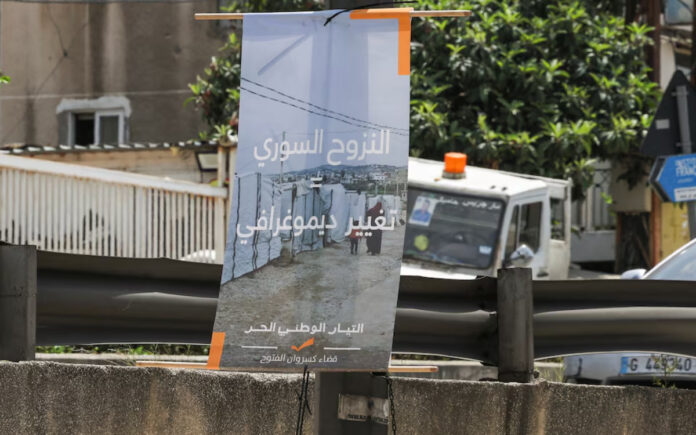Bekaa Valley: In the early hours, soldiers descended upon a tattered camp in Lebanon’s Bekaa Valley, singling out Syrian men lacking residence permits. Amidst the cries of toddlers, Mona, a Syrian refugee of a decade, witnessed her brother being loaded onto a truck bound for the Syrian border.
After thirteen years since Syria’s conflict erupted, Lebanon still shelters the world’s largest refugee population per capita, approximately 1.5 million Syrians. Among them, half are formally registered refugees with the United Nations refugee agency UNHCR, residing in a nation of around 4 million Lebanese.
Lebanon grapples not only with an economic crisis but also with a diminished willingness to host Syrian refugees. With dwindling funds pledged by donor countries for Syrian aid, Lebanese authorities and politicians, often at odds, now align on one front: Syrians must return home.
Employers receive directives to cease hiring Syrians for menial jobs, municipalities impose new curfews, and some have even evicted Syrian tenants, signaling a growing antipathy towards Syrian refugees. Recently, a northern Lebanese township closed an informal camp, dispersing its Syrian inhabitants.
This month, Lebanese security forces issued a directive tightening the criteria for Syrians to apply for residency, causing panic among those facing potential deportation as legal status eludes them.
Also Read | Poland to Reintroduce Buffer Zone at Belarus Border, Says Prime Minister Tusk
While Lebanon facilitates voluntary returns for some Syrians, others face summary deportation. Caught in camp raids or at checkpoints, more than 400 have been forcibly sent back by the Lebanese army, raising concerns about human rights violations, forced military service, and arbitrary detention.
Mona, fearing Lebanese authorities, shared her brother’s ordeal, revealing that he was instructed to register with Syria’s army reserves upon return. Consequently, men in the camp refrain from venturing out, unable to perform routine tasks or access essential services.
Also Read | Algeria Proposes UN Resolution to Halt Violence in Gaza’s Rafah
The recent killing of a local Lebanese official attributed to Syrians ignited a surge in anti-refugee sentiment. Online platforms were rife with hate speech, with a significant portion advocating for deportations, and some viewing Syrians as an “existential threat.”
These tensions spilled into international relations, with Lebanon’s foreign minister pressuring UNHCR to withdraw objections to new restrictions. Lawmakers criticized a billion-euro EU aid package, dismissing it as a bribe to prolong refugee hosting.
Also Read | Refugee Chief Urges Action from Syria and Donors to Facilitate Refugee Return
While some Lebanese lament that Syrian refugees receive more aid than locals, the U.N. maintains that Syria remains unsafe for large-scale returns. UNHCR’s head Filippo Grandi expressed concern over rising anti-refugee rhetoric, cautioning against forced returns, which he deems unsustainable.
For Zeina, her husband’s recent deportation left her without work or legal status in an increasingly hostile Lebanese environment. Despite the perils of returning to a devastated homeland, the alternative of remaining in Lebanon grows ever more precarious for Syrian refugees.



